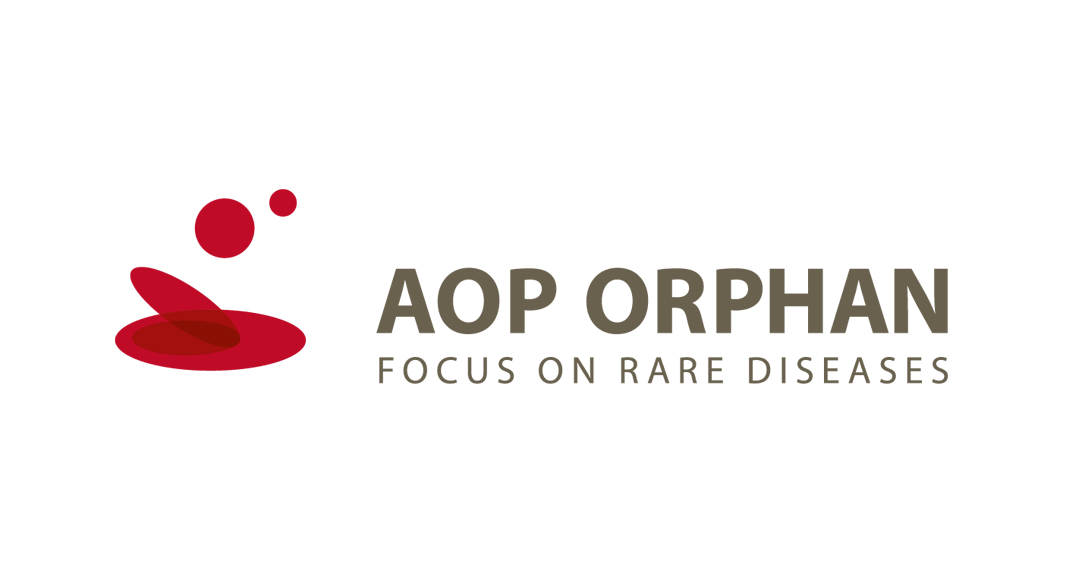
AOP Orphan optimises the patient experience with integrated therapy solutions combining drugs, medical devices, and empathic care.
Austria-based company AOP Orphan Pharmaceuticals AG has been working in the field of rare and complex diseases for 25 years, placing the needs of the affected patients and their families, as well as those of physicians and care professionals, at the heart of its work.
Rare diseases are those which occur in fewer than five per 10,000 members of the population. In Europe, around 30 million people are affected by one of 6,000 known rare diseases. Approximately 80% of rare diseases are attributed to a genetic cause, while the remaining 20% can be ascribed to bacterial or viral infections, allergies, and environmental factors. In Austria, around 400,000 people have been diagnosed with a rare disease.
AOP Orphan
Dr Rudolf Widmann founded AOP Orphan in 1996, with the goal of developing and providing therapy options for patients with rare diseases and transforming the patient experience in the process. “I worked in large international pharmaceutical companies for several years and observed that there were some therapy options for rare diseases, but they did not reach the majority of patients,” he says. “I realised that these patients are frequently left alone in their suffering. As an entrepreneur, the complex environment of rare diseases was a great challenge.”
In the coming decades, personalised medicine and individual treatment opportunities will emerge more and more as the standard of AOP Orphan’s therapy concepts. Furthermore, the increasing range of health knowledge which is easily available to patients and their family members will also determine the future of pharma and the healthcare sector. With this prospect in mind, AOP Orphan founded OrphaCare GmbH, an Austrian medical device and patient services company, in 2018.
Expansion and growth
In 2020, AOP Orphan acquired AMOMED Pharma, an intensive care specialist also based in Vienna, and SciPharm, a pharmaceutical and medical technical device research company out of Luxembourg, both of which are now part of the AOP Orphan Group. The new, combined product portfolio, territorial coverage and the stronger pipeline gave the AOP Orphan Group a substantial boost in growth; and the company now has operations in all European countries, as well as the United Arab Emirates and Israel, with more than 20 subsidiaries and representative offices. The group’s portfolio includes over 30 drugs, as well as patient services and medical products in four indication areas: haemato-oncology; cardiology and pulmonology; neurology and metabolic disorders; and intensive care medicine.
AOP Orphan features the entire development and life cycle of products under one roof: research and development; registration; marketing; and supply. New therapeutic options developed by the company are first introduced in Austria, followed by AOP Orphan’s core European countries, then finally into the international market. Over 350 employees are dedicated to helping patients with special and rare diseases which require complex management.
As a privately held company, AOP Orphan is dedicated to long-term commitment, high quality, and continuity. For a small number of very special diseases, AOP Orphan is the sole supplier of some key therapeutic agents throughout the world.
Patient services: care and compliance for a better quality of life
Running from one physician to another, from one hospital to the next, to get everything you need when you are sick is exhausting and frustrating. For patients suffering from shortness of breath because of pulmonary arterial hypertension (PAH), making countless phone calls or visiting medical institutions is draining; and in some cases can even worsen the condition.
Patients are not just overwhelmed by an initial diagnosis of PAH, but also with the process the treatment entails. Whom do you ask when you have a question about sudden discomfort? Which of the several physicians involved in the therapy has the answer? Patients suffering from PAH often face this dilemma.
PAH is associated with progressive destruction of pulmonary vasculature and a significant reduction of the blood flow through the lungs. Eventually, lung circulation can only be maintained by a progressive increase in blood pressure within the pulmonary circulatory system, which becomes a fatal burden on the heart. Left untreated, half of patients will die within three years, making an early diagnosis essential for survival.
The reduced flow of blood through the lungs is accompanied by an insufficient supply of oxygen to the body. Consequently, patients experience lethargy, shortness of breath and a decrease in physical fitness. The simple act of climbing stairs can be agony for these patients. The thought of having to take on the additional exertion of going to a hospital can lead to anxiety and despair – neither of which is beneficial for PAH sufferers.
Integrated patient services
OrphaCare GmbH, part of the Austria-based AOP Orphan Group, develops and implements innovative and customised therapy solutions for patients with rare diseases which require complex treatments. The company focuses on medical devices, paired with organising accompanying care services tailored to the patient’s needs, in order to find the best possible holistic solution. The company offers infusion pumps for PAH patients who require long-term, round-the-clock medication for survival. OrphaCare’s patient services organise swift support and assistance if a patient has issues or concerns. This single point of contact solution ensures that all parts of the therapy are co-ordinated, reducing risks and establishing a smooth patient experience.
The consistent, life-saving supply of medication is not the only advantage of infusion pumps. The device helps patients breathe more easily and enables them to take part in everyday life, whether that means going for a walk, attending family gatherings or even riding a bike again. Nothing is more motivating to a patient than getting their lives back; and the more motivated patients are, the more they are willing to comply with their treatment. However, the patient first needs to be convinced that the pump will improve their condition and that their active involvement in the therapy is essential for a successful outcome and improved quality of life. This requires a solid and reliable support network.
The many meanings of ‘care’ in healthcare
Establishing an effective support network starts with introducing someone the patient can trust and who can assuage their fears around handling medical devices; a point of contact who is medically trained and can help point the patient in the right direction when it comes to therapy-related questions. However, just as importantly, this person also needs to have the soft skills to establish a long-term relationship with the patient, based on trust and empathy, and must be willing to lend an ear for emotional concerns as well.
One such person can be a medical expert in the form of a qualified nurse or caregiver working with PAH patients: their medical know-how, paired with empathic delivery of care, contribute to a vital support system for rare disease patients. Not every nurse is qualified to provide help for these types of patients, as PAH patients require caregivers with a specific training. Following initial training for patients, their families and other caregivers in the handling and maintenance of the infusion pump, the qualified nurse and their team are available 24/7 for patient consultation and support. They are available to answer questions about operating issues with the pump and any other concerns patients may have.
However, the qualified nurse is not just an important point of contact for the patient: they also work closely with physicians to determine whether the pump will be suitable for a patient or not. This treatment option may not work for everyone, whether this is due to their stage of the disease or because they are unable to perform the maintenance work that the pump requires.
While at first glance, taking a pill seems like an easy alternative, it may not be the best solution for the patient in the long run. The pump supplies a set dose of medication at periodic intervals, including during the night, and the patient does not need to worry about forgetting to take it. The pump can also reduce the number of times the patient has to go to the hospital for check-ups, which is particularly useful during the current COVID-19 pandemic. By not needing to go to a hospital and risk potential exposure to COVID-19 on public transportation or in the hospital waiting area, PAH patients reduce the risk of getting an infection and possibly developing complications such as pneumonia, which could be life-threatening for them.
User responses and feedback
A head of a Viennese outpatient clinic for pulmonary hypertension, who is a specialist in internal medicine, cardiology and intensive care medicine, has witnessed first-hand how patients’ quality of life and life expectancy are improved by the pump. She emphasises that care is everything – and care is multifaceted for PAH patients. On the one hand, there is the assurance for patients that there is someone who cares about their wellbeing and that they do not have to go through this alone; while the other aspect is the daily care from their individual caregivers, who help with inserting the needle under the skin, organising the medication, refilling the reservoir if they cannot do it themselves, and other related services. Knowing that they can call on a qualified nurse at any time with urgent matters and being able to contact other PAH sufferers through the self-help support group offers great relief for these patients and reduces stress and anxiety.
The feedback provided by caregivers and patients themselves, through their nurses (OrphaCare has no direct contact with the patients), is of immense importance for the further development of the pump and the therapy overall. OrphaCare serves as a hub for co-ordinating and continuously optimising all aspects of the treatment. This includes a personalised pump technology based on the patient’s needs, the medical experts who help with managing the pump and the accompanying therapy, as well as the patient services: a full-service one-stop point of contact.
Patient quality of life and – more importantly – the patient’s happiness with the treatment are what drive innovation and provide valuable input for further customised therapy solutions. The aspect of ‘patient happiness’ is also what ensures patients’ willingness to participate proactively in the treatment: when they notice an improvement in their condition, while also knowing there is a supportive network available to them in case of any issues, they will be more motivated to apply all the necessary steps needed.
This article is from issue 17 of Health Europa. Click here to get your free subscription today.








